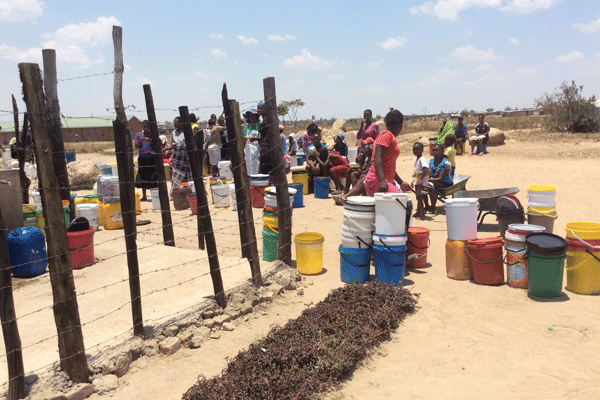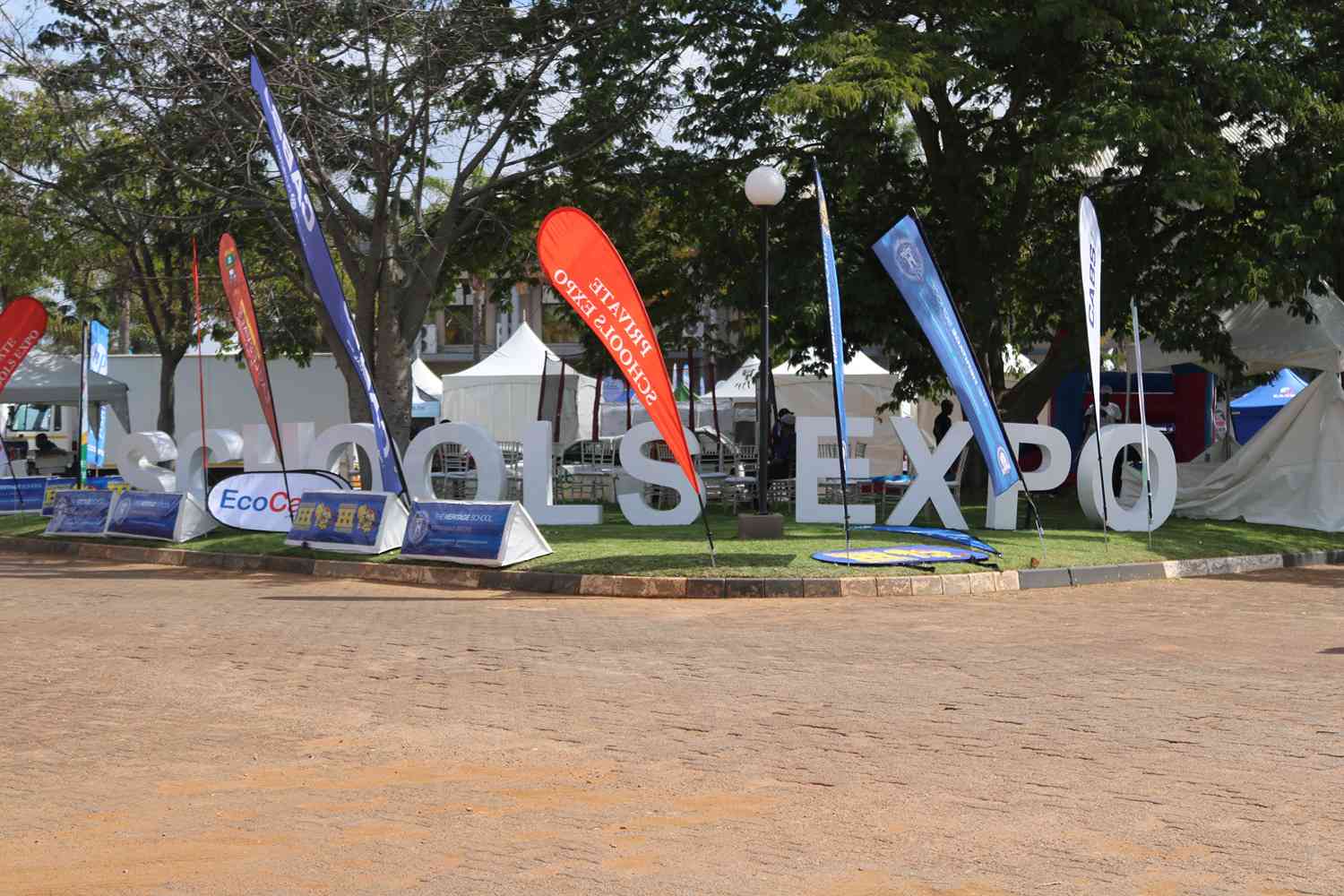
Forty-year-old Winnie Jeni has no choice, but to leave her epileptic daughter alone as she wakes up early in the morning every day to fetch water. This had been Jeni’s routine since she relocated to Hopley residential area in Harare in 2005.
social commentary
with Moses Mugugunyeki
She risks her life and that of her first-born daughter, who accompanies her to a borehole at dawn, as they have to beat the queue to come back home earlier and do other household chores.
“Normally, we wake up around 3am, and I am forced to leave my epileptic daughter at home while I take my first-born daughter to the borehole,” said Jeni, a mother of four.
“We risk being mugged or sexually abused as we have to wake up at dawn and at times, it will be very dark, but we have no choice.”
Jeni is among hordes of people across the globe, particularly women, who have been affected by water stress.
According to a 2019 UN Women report, in 80% of water-deprived households, women and girls carry the burden of water collection.
- Chamisa under fire over US$120K donation
- Mavhunga puts DeMbare into Chibuku quarterfinals
- Pension funds bet on Cabora Bassa oilfields
- Councils defy govt fire tender directive
Keep Reading
This means waking up early in the morning, travelling to distant water points and carrying heavy loads, in some cases with a high risk of violence. “At times, you would find some men at the boreholes, who would want you to pay them to allow you to fetch water,” Jeni said.
“When schools are open, it is difficult for us to prepare for children as we will be in the water queues.”
The dire water situation in Hopley is exacerbated by the fact that the settlement does not have proper infrastructure.
With a population of close to 10 000 households, Hopley just like any embryonic settlement, is characterised by poor water, sanitation and hygiene facilities. “As you can see, we don’t have a proper water reticulation system for all these years we have stayed here,” said Joyce Chigudu, who was among scores of residents waiting to fetch water from taps at Tariro Primary School.
“We came here around 3am and we are expecting to go back home at least by 3pm. We are here to get only three buckets out of the seven that I need to cater for my family of 10.
“We get the three buckets for drinking and cooking while for other chores we fetch water from Mukuvisi River.
“When push comes to shove, we get into the cemetery [Mbudzi] where residents have dug wells.”
According to a 2017 report from Unicef and the World Health Organisation, 2,1 billion people around the world have no access to clean and safe water. The Zimbabwe Demographic and Health Survey (2015) says the national coverage of improved water service provision stands at 78%, 69% for rural and 97% in urban areas, while improved sanitation stands at 37%.
However, new settlements such as Hopley, Southlea Park, Stoneridge Park, Retreat, Eyecourt and Caledonia, among others, are yet to be connected to the council water reticulation system.
They continue to bear the brunt of the poor water and sanitation situation in the capital city.
According to a council health report, the new settlements are among the hotspots for waterborne diseases.
“Our biggest challenge is that we are not connected to the city’s water system and we are yet to get hygiene and sanitation facilities here. It is something we are trying to push in the council,” said Harare South Ward 1 [Hopley] councillor Tendai Katsariya.
“People here face acute water shortages that they end up digging wells in the cemetery or crossing the dangerous Masvingo-Harare highway to fetch water from Mukuvisi River.”
Though the local authority in partnership with the donor community have sunk boreholes in Hopley, most of them are ineffective.
“The water situation is dire. We need tapped water and proper infrastructure,” Chigudu said.
“Most women in this area rely on vending, but we are now spending the better part of the day fetching water. We appeal to the responsible authority to act on the situation here.”
A 2017 United Nations survey of 177 countries pointed out that women spend an estimated 40 billion hours in a year collecting water, which has incapacitated their efforts to engage in other productive and reproductive activities.
In the wake of such water challenges in Hopley and other parts of the country, the Zimbabwe Red Cross Society (ZRCS) and Unicef on Friday launched a US$650 000 water, hygiene and sanitation project in Hopley and seven other districts across the country.
“The Wash (water, sanitation and hygiene) project launched here today is part of a broader programme aimed at promoting hygiene during this time of Covid-19,” said ZRCS acting operations director Tapiwa Chadoka.
“We intend to sink seven more boreholes here in Hopley, rehabilitate the ineffective ones and solarise the system for the provision of tapped water. “This is part of a comprehensive Wash programme in the wake of Covid-19. We also have programmes aimed at promoting hygiene and, as you can see, we have donated buckets, detergents and other necessities meant to promote hygiene.”
Chadoka said the programme was inclusive taking into consideration people with disabilities, women and children.
“I would like to thank Unicef for the partnership and the AfDB (African Development Bank) who are funding this project,” he said.
“Apart from Hopley, we are taking this project to six other districts, namely Marondera urban, Binga, Gwanda, Mangwe, Muzarabani, Siakobvu and Kwekwe rural.” Councillor Katsariya hailed the support from ZRCS.
“On behalf of the Hopley community, I would like to thank Red Cross and Unicef for this timely intervention,” he said.
“I urge the community to be supportive of such an initiative as it mitigates our problems here.”
He was optimistic waterborne diseases, especially among children, would be a thing of the past.
According to Unicef, 1,6 million children die globally every year from diarrhoea that could be prevented with clean water.
Infectious diarrhoea is mainly responsible for the burden caused by water-borne and water-washed diseases.
Speaking on Friday during belated commemorations to mark Global Handwashing Day, Unicef representative Laylee Moshiri said Unicef was committed to support Wash programmes in Zimbabwe.
“As we commemorate the Global Handwashing Day, Unicef commits to continue working with the government of Zimbabwe and all partners in promoting strategies that enable sustainable Wash service delivery,” Moshiri said.
“I would particularly like to mention UK Zimbabwe which has continued supporting the Wash sector in Zimbabwe.
“We are also thankful to the World Bank and AfDB Group for their support to Unicef as well as Hygiene Behavioural Change Coalition and our UN agencies.”
Unicef has continued to increase access to water by drilling new boreholes and rehabilitating ineffective ones both in urban and rural areas.











